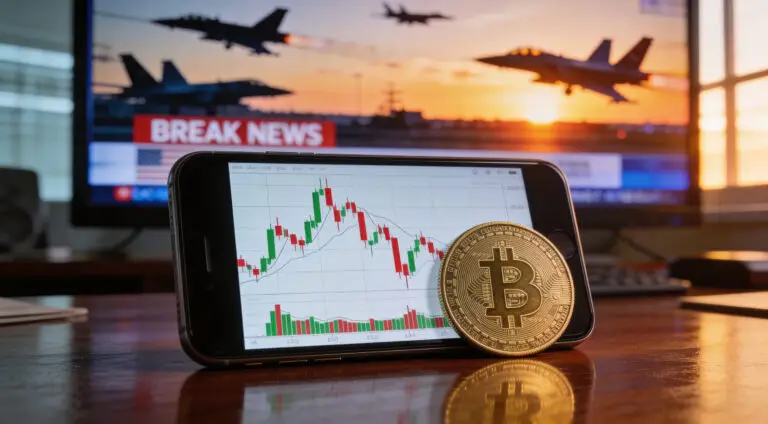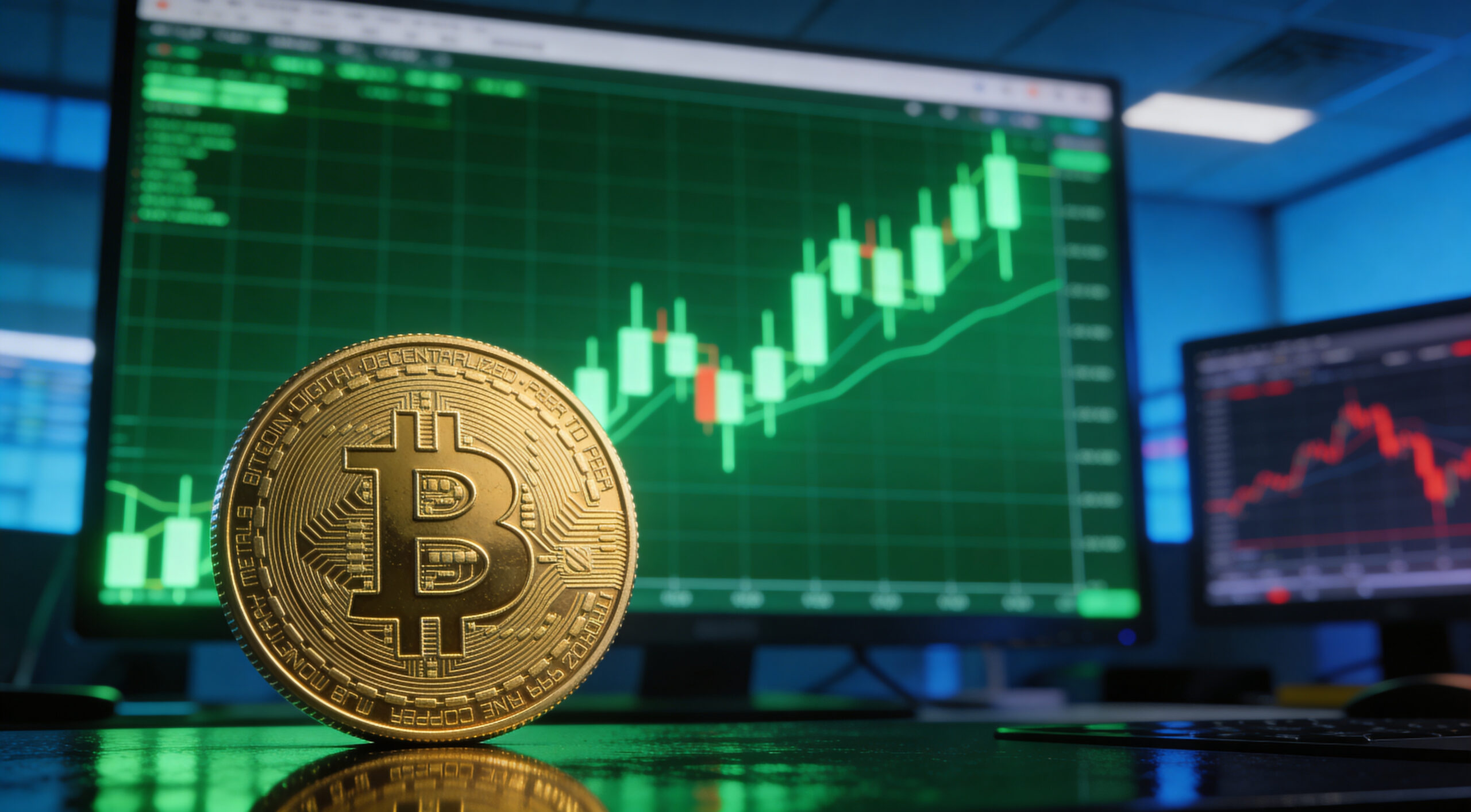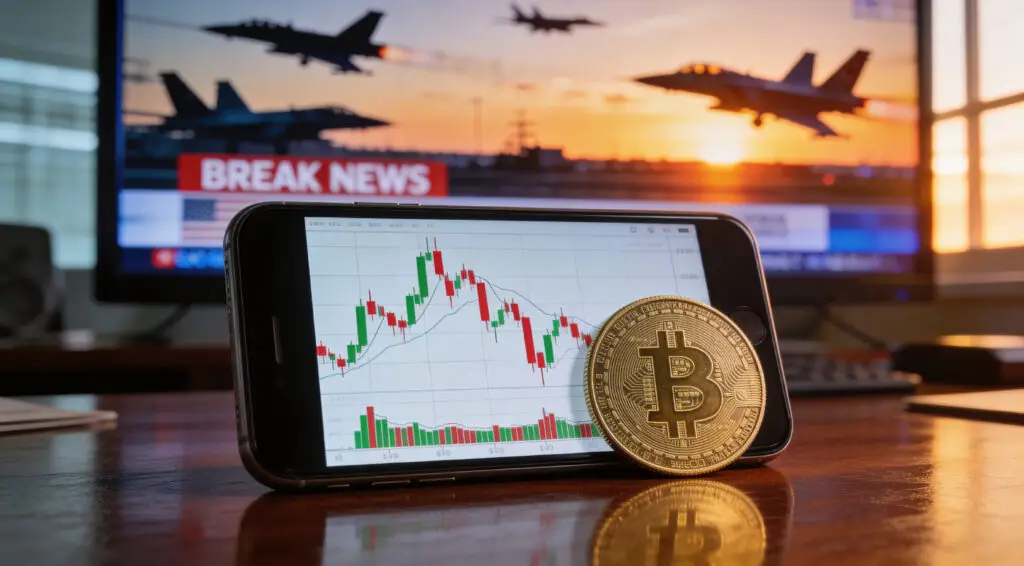Global Markets Tumble as Credit Pressures Intensify
On Friday, global financial markets experienced a significant downturn as concerns regarding the stability of US banking led to steep drops in major indices. European and Asian stocks experienced a simultaneous decline following the revelation of significant loan losses and potential fraud exposure by two US regional banks, bringing to mind the collapse of Silicon Valley Bank in 2023.
The FTSE 100 experienced a decline of 1.5%, while Germany’s DAX saw a drop of 2%. France’s CAC 40 also slipped by 1.5%. In Asia, Japan’s Nikkei 225 and Hong Kong’s Hang Seng faced losses of 1.6% and 2%, respectively. Wall Street futures indicated a downward trend, reflecting ongoing concerns as global investors reevaluated the financial stability within the banking sector.

Gold Hits Record $4,378 as Safe Havens Surge
Amidst turmoil in equity markets, investors flocked to conventional safe havens. Gold prices have reached an unprecedented peak of $4,378 per ounce, reflecting an 8.5% increase over the week, the most significant rise since the 2008 financial crisis. Experts characterized the action as a classic response to escalating credit worries in the face of constricting liquidity.
The change indicates increased concern following the reports from Zions Bancorporation and Western Alliance Bancorp, which disclosed tens of millions in problematic loans. Zions has recorded a $50 million write-off, whereas Western Alliance has initiated legal proceedings concerning a $100 million loan that has gone into default. Stocks of both banks fell sharply by over 9–10%, leading to a decline in the wider US financial sector.
Fears of a Domino Effect Grip the Banking Sector
Market analysts cautioned that the scenario, while contained, might reveal underlying weaknesses in the system. Jim Reid from Deutsche Bank pointed out that the losses reflected preliminary indicators reminiscent of the 2023 regional banking crisis. He remarked, “Though modest in scope, the similarities to Silicon Valley Bank are evident and disconcerting.”
The anxiety grew stronger after the bankruptcy of subprime auto lender Tricolor and the downfall of First Brands, an auto parts supplier that sought Chapter 11 protection in September. First Brands disclosed liabilities ranging from $10 billion to $50 billion, which analysts suggest indicates the emergence of risky off-balance-sheet financing now becoming apparent in the context of slower economic growth.
Recommended Article: US Small Business Confidence Falls As Inflation Fears Rise
London Banks and Financial Stocks Lead Declines
The unexpected jolt reverberated across the FTSE 100, with almost all significant stocks declining in the initial trading session. British banks experienced significant declines, with Barclays falling by 4.7%, Standard Chartered decreasing by 4.3%, and NatWest dropping by 3.1%. Asset manager ICG experienced a 5% decline, continuing its downward trend from earlier in the week.
Market fluctuations intensified across every sector. The VIX Index, often referred to as Wall Street’s “fear gauge,” surged over 22% on Thursday, marking its highest close since April, and added another 6% on Friday morning. Experts cautioned that the rise in volatility may indicate more profound market tensions as we approach next week’s US earnings announcements.
Analysts Warn of Broader Economic Weakness
Market analysts suggest that the recent banking turmoil could expose weaknesses in credit quality after a prolonged period of high interest rates. Derren Nathan from Hargreaves Lansdown warned that even with hopes for rate cuts, “focus is turning to the economic landscape as regional banks encounter increasing loan losses.”
Richard Hunter of Interactive Investor noted that investors are facing “stretched valuations in the AI sector, political gridlock in Washington, and worsening relations with Beijing,” all of which intensify the uncertainty affecting global markets.
Lessons from the Collapse of Silicon Valley Bank
The resurgence of concerns evokes unsettling similarities to March 2023, when Silicon Valley Bank, at that time the 16th-largest lender in the US, fell apart after an unsuccessful attempt to raise capital. The collapse, spurred by significant losses in bond portfolios and a surge in deposit withdrawals, represents the most substantial bank failure in the United States since 2008.
The aftermath of SVB’s downfall has rendered markets exceptionally alert to any indications of financial turmoil. Experts caution that even small loan defaults may provoke significant reactions from investors, highlighting a heightened sense of vigilance in the current tightened landscape.
Gold Gains Ground Amid Diminishing Confidence
Gold and other secure investments are expected to continue their upward trajectory as bond yields decline and banking stocks face challenges. The IMF’s Kristalina Georgieva and JP Morgan’s Jamie Dimon have expressed concerns about private credit market risks and potential financial troubles following recent defaults.
Experts predict ongoing fluctuations and increases for gold unless confidence stabilizes, as market sentiment begins to reflect early signs of crisis-era apprehension.














